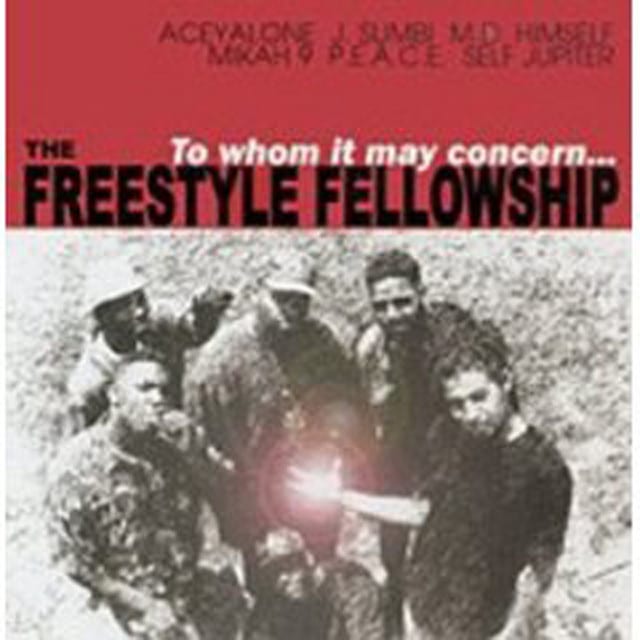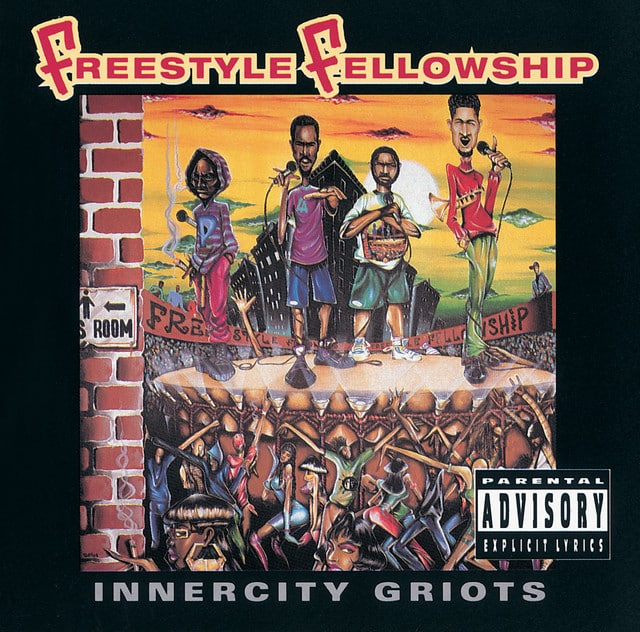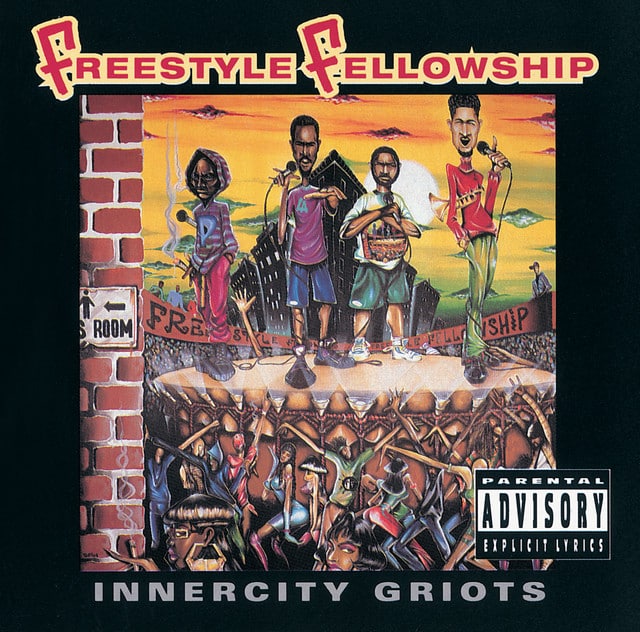Released: 1999
“Sunshine Men” by Freestyle Fellowship draws a stark line between authentic hip-hop artists – as represented by the group themselves – and those who have sold out, contributing to a shallow, commercialized music industry. The song poetically illustrates the struggle of true artists in an industry riddled with “pay-to-play” tactics and artificiality, while also taking a subtle dig at those who misuse hip-hop culture for personal gain.
The song begins by painting a scene of complacency with lyrics like “MCs comin’ thru / While [I] was at home, on my couch, watchin’ the boob tube”. The speaker acknowledges the growing superficiality in the hip-hop scene, largely represented by TV and radio. The “boob tube” slang here refers to television – historically seen as a mind-numbing device used to propagate societal norms.
There’s an indicting reference to the West Coast hip-hop scene, with the line “The heart of all wackness, lies rooted out west.” ‘Wackness’ is a colloquial term often used within the hip-hop community to describe anything that lacks originality or isn’t up to par. Here, the narrative pivots to an introspective examination of artists who have become “sunshine men,” exploiting the liberating qualities of the Californian sun to profit at the expense of the genre’s integrity.

Phrases like “sellout” and “cash flow” emphasize the group’s disdain for those who commercialize art for personal gain. To ‘sell out’ in hip-hop culture means to compromise on your artistry and lyrical authenticity for mainstream success. The “cash flow” refers to the commercial nature of the industry, where big-money interests often drive the music that gets airplay.
The song illustrates how ‘talentless’ individuals, profiting from illegal activities (implied through “big drug profits”), use rap as a tool to escape their past, yet ironically they still desire the lucrative returns (“insane pay”). However, despite having the platform, they lack originality and have nothing substantial to say.
The Sunshine Men represent genuine artists who stick to their roots, lean into their creativity (raw words, beats), and resist selling out. They bring the truth, using their art as a form of social commentary to “enlighten and to direct” listeners, thereby challenging the status quo (‘inflation’ and western ‘civilization’) and seeking to keep the authenticity of the genre alive.
Finally, the song ends on a strong note, criticizing the self-proclaimed “‘kings'” who, lacking the skills to survive in the tougher East Coast rap scene (“big apple”), fled west where they could more easily dominate in the relatively nascent music community (“small stream”) and perpetrate as West Coast stars. However, the Freestyle Fellowship stands firm, refusing to shelter under the ‘trees of confusion’ and choosing to remain ‘clear-minded’, preserving the sanctity of the genre.
In conclusion, “Sunshine Men” is an unapologetic critique of the commercialization of hip-hop, declaring a call to arms for artists to resist selling out and strive to maintain the art form’s authenticity and integrity. Through their lyrical prowess, Freestyle Fellowship effectively highlights the tension between ‘true’ and ‘sellout’ musicians, emphasizing their commitment to raw, original hip-hop.





